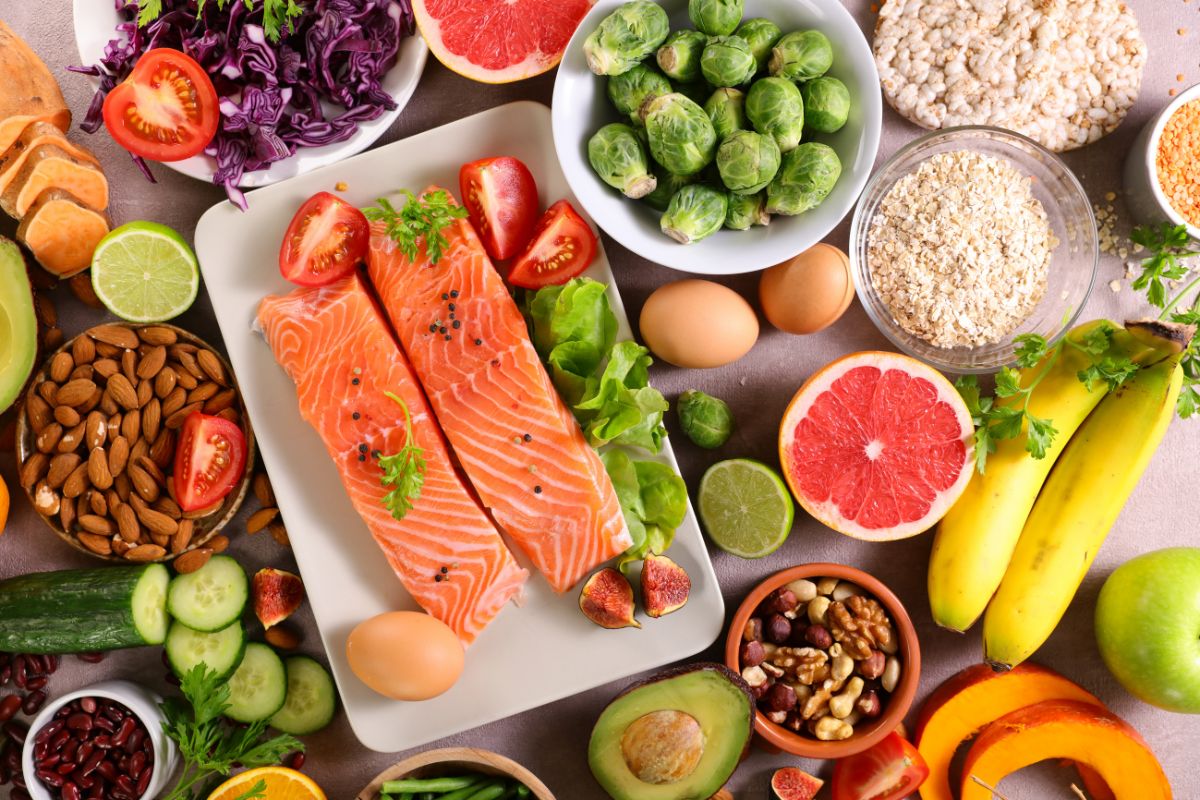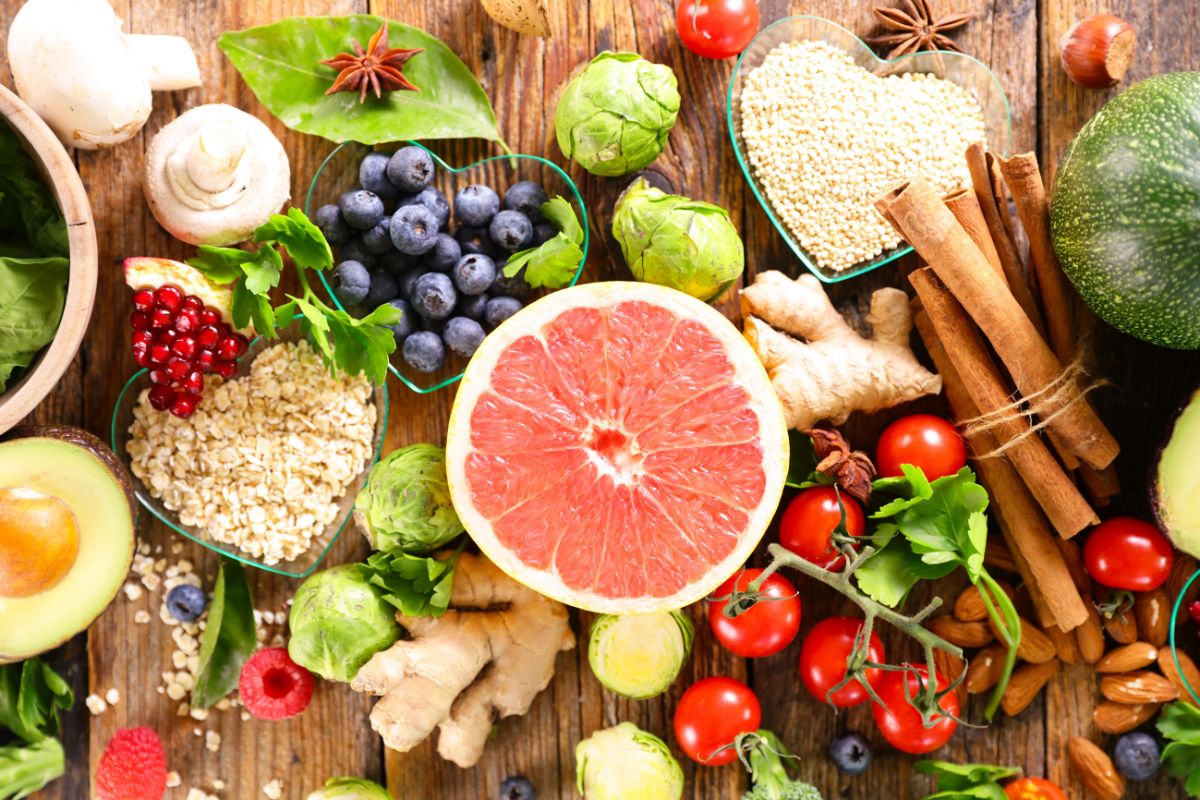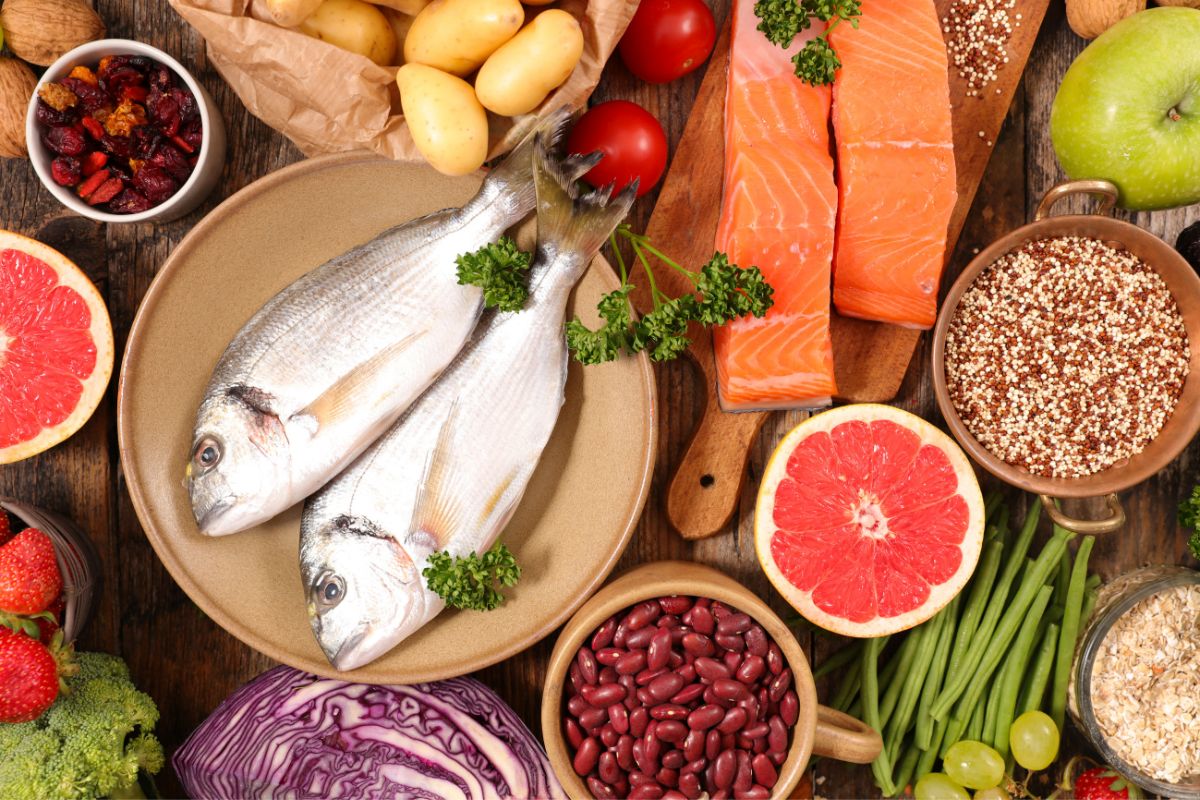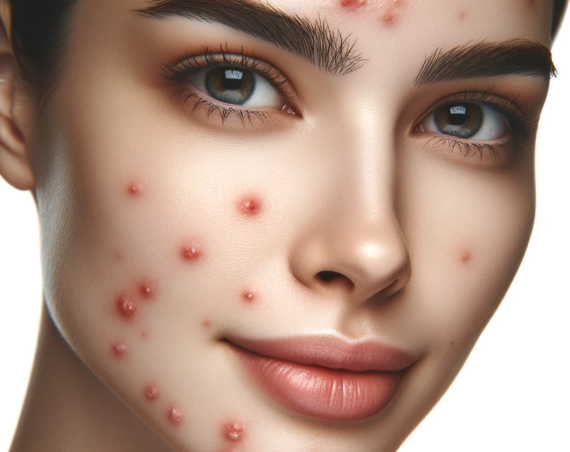Menopause is a transitional time in a woman’s life, but it rarely transitions smoothly.
Most women will experience some symptoms of the menopause whether they are physical, emotional or psychological.

One of the most commonly felt symptoms during the menopause are hot flashes.
This sudden rise in temperature accompanied by reddened skin and a rapid heartbeat can be alarming. But can diet help?
We have found some of the best health foods that fight hot flashes to help you deal with this uncomfortable issue.
Foods With Phytoestrogen
Hot flashes are caused by fluctuations in hormone levels particularly estrogen.
This decline can also cause mood swings, loss of libido and low mood. By eating foods that are rich in phytoestrogen it may be possible to alleviate some of these symptoms.
Phytoestrogen is derived from plants and its structure is similar to a particular estradiol.
There are four phenolic compounds which are classified as phytoestrogens, isoflavones, lignan, coumestan and stilbene.
Some of these can be found in healthy foods.
Isoflavones are found in soybeans as well as other legumes. Stilbene is found in grapes and peanuts, while the most common source of lignan is flax seed.
Coumestan is found in sunflower seeds and spinach among other plants.
Magnesium Rich Foods
Magnesium is found in a variety of foods including seeds, nuts, legumes, fruits and vegetables.
This is one reason why those who follow a plant based diet may experience fewer hot flashes and with less intensity than other women.
A study has shown that women may experience a significant reduction in hot flashes when given magnesium supplements.
Foods which contain magnesium can provide enough of this mineral to alleviate hot flashes if those foods are consumed on a daily basis.
As well as helping to reduce hot flashes a magnesium rich diet may also reduce the risk of osteoporosis, diabetes, and high blood pressure.
Foods To Cool You
By eating foods that can regulate your body temperature you may be able to reduce the intensity or frequency of hot flashes.
The actual temperature of the food will not affect your body temperature but most are eaten in their raw state.
Examples of cooling foods include cucumber, radish, carrots, bananas, watermelon, apples and pears.
These are thought to help hydrate the body, balance mineral levels and sugar levels as well as aid digestion.
Practitioners of traditional Chinese medicine also recommend having a mixture of cold and warm foods which keep the body balanced.
Vitamin E Rich Foods
Studies over the years have shown that vitamin E has a significant impact on the intensity and incidence of hot flashes.
Many of these studies were conducted using vitamin E supplements but a diet rich in vitamin E may help to combat or alleviate hot flashes.
As well as helping to reduce hot flashes, vitamin E rich foods are also beneficial for the immune system and heart health.
Some of the foods which are rich in vitamin E include avocados, shellfish, spinach, broccoli, sunflower seeds, mango, red bell pepper and asparagus.
With so much choice it wouldn’t be difficult to incorporate some of these foods into your diet.
Omega 3 Fatty Acids
Menopausal night sweats are similar to hot flashes in that they raise your temperature without any external cause.
There is debate about whether the two are the same thing with night sweats happening purely at night, while hot flashes can occur at night or during the day.
However, there may be a difference according to new research.
Hot flashes don’t always cause you to sweat for a long period of time whereas night sweats take a while to dissipate.
Research into the effects of omega 3 fatty acids on menopausal night sweats showed a reduction in their incidence.
The same did not apply to the effect on hot flashes. But for women who experience the discomfort of night sweats an omega 3 rich diet may help.
Foods that contain omega 3 fatty acids include cold water fatty fish such as salmon, tuna, and mackerel. Fortified foods such as cereal and yogurts also contain omega 3.
Vitamin C & Bioflavonoids
A diet rich in vitamin C and bioflavonoids can significantly reduce the risk of hot flashes during menopause and perimenopause.
Bioflavonoids are a group of phytochemicals or compounds that are produced by plants.
Citrus fruits contain both vitamin C and bioflavonoids with the core and pulp being a rich source of bioflavonoids.
Foods rich in these are oranges, lemons, limes, but also in cherries, pomegranates and grapes.
Many women who experience hot flashes have high blood sugar levels. Lemon juice can regulate glucose levels as it slows the digestion of carbohydrates.
In a study, those who drank lemon juice with bread had 30% lower glucose levels than those who drank water with bread.
So lemon juice may help to fight hot flashes by lowering blood glucose levels. Apple cider vinegar has a similar effect.
Healthy Snacks
There are plenty of healthy snacks that can help you to fight hot flashes. Nuts such as hazelnuts and almonds are high in vitamin E and magnesium.
Other snacking foods like sunflower, pumpkin and sesame seeds all contain phytoestrogens.

Raw foods like carrots, cucumber, and green beans contain magnesium, vitamin E and are high in healthy fats and nutrients that contribute to overall good health.
Fruit is one of the most convenient and healthy snacks and can help you alleviate the symptoms of hot flashes.
Fortified yogurts containing omega 3 fatty acids are a healthy between meal snack.
Foods To Avoid
While we have looked at some of the healthy foods that you can eat to fight hot flashes there are also some foods which you should avoid.
Processed Foods
Processed foods are never a healthy option and when it comes to menopause and hot flashes it is no different.
Studies have linked too much processed sugars with an increased incidence of hot flashes.
Highly processed foods get turned into sugar and create a sharp spike and then drop in blood sugar which can trigger a hot flash.
Carbohydrates may be more likely to create this effect.
Spicy Food
Some spicy foods can trigger hot flashes, so it may be worth dialing down the heat in some of your foods.
This doesn’t mean you have to eat bland foods but perhaps try substituting hot spices for a more mild flavoring to see if it helps.
Coffee
Caffeine is another substance that may contribute to hot flashes.
It can also raise your heart rate and is a diuretic which may cause dehydration, both of which can exacerbate the feelings of a hot flash.
Alcohol
Alcohol intake should be carefully monitored if you experience hot flashes.
An occasional drink shouldn’t cause any problems, but daily alcohol can increase the intensity of hot flashes.
Red wine in particular seems to be a trigger for hot flashes particularly if consumed late at night. Reducing the amount you drink will help and improve your overall health.
Buyer’s Guide
Now that you know what to look for when shopping for healthy foods to fight hot flashes, let’s take a look at what the best foods are to benefit from these vitamins, minerals and nutrients.
Fruits & Vegetables
Certain fruits and vegetables are rich in phytoestrogens which mimic the estrogen that declines during menopause.
Apples, pomegranates, strawberries, grapes and cranberries are all high in phytoestrogen.
Many fruits are also good sources of magnesium such as strawberries, cherries, blackberries and kiwi.
While bananas, watermelon, apples and pears are among the cooling foods that can help fight hot flashes, mango and avocado are high in vitamin E.
Cherries, pomegranates and grapes are also good sources of vitamin C.
Vegetables which are a good source of phytoestrogen include yams, carrots, lentils, sprouts, alfalfa sprouts and mung beans.
Leafy green vegetables such as spinach, and cabbage are excellent sources of magnesium.
Carrots, radish and cucumber can be included in the group of cooling foods that can help to alleviate hot flashes.
To add more vitamin E to your diet you can eat raw red pepper, turnip greens, butternut squash, broccoli and asparagus.
Nuts & Seeds
Flaxseeds are very high in phytoestrogen. Sunflower seeds, almonds, sesame seeds and walnuts also contain phytoestrogen.
Pumpkin seeds, chia seeds, cashew nuts and peanuts are all good sources of magnesium.
To add to your vitamin E levels include some hazelnuts, pine nuts, pistachios, pecans and Brazil nuts.
Fish is not the only source of omega 3 fatty acids. Walnuts also contain high amounts of this hot flash fighting nutrient.
Peanuts, hazelnuts, and pecans are also good sources of omega 3 but in their natural unsalted and unsweetened state.
As a healthy snack nuts and seeds are an excellent part of your diet when dealing with the symptoms of menopause.
The added fiber and healthy fats are always going to be beneficial to your overall health.

Cold Water Fish
Cold water fish such as sardines, herring, tuna, mackerel and salmon are all high in omega 3 fatty acids.
These have a positive impact on menopausal night sweats.
This is increased when omega 3 is combined with vitamin E so a diet which is rich in both will benefit you in your fight against menopausal hot flashes.
Some fortified foods including cereals, and yogurts include omega 3 fatty acids.
Certain brands of juices, milk, soy drinks and eggs may also have added omega 3, although it may be listed as DPA or EPA in the ingredients list.
Cold water fatty fish also contain high levels of magnesium.
Citrus Fruits
Citrus fruits such as lemons, limes and oranges are high in vitamin C and flavonoids. Flavonoids are plant based nutrients which give these plants their color and aroma.
They have many beneficial effects and therapeutic qualities.
Cherries, grapes and pomegranates are good sources of vitamin C and bioflavonoids. The pulp of citrus fruits also contains magnesium.
Soy
Soy products are high in isoflavones, a type of phytoestrogen. Those who include more soy in their diet have a lower risk of experiencing hot flashes.
In studies of a low fat vegan diet containing soy, participants experienced a decrease of 79% in hot flashes.
The less processed the soy is the more beneficial it is for those suffering from hot flashes.
Tofu, miso, tempeh, soybeans, edamame, soy milk and soy nuts will be more beneficial than processed soy products.
Soy also contains magnesium and vitamin E in the form of gamma-tocopherol mostly from soybean.
Frequently Asked Questions
What Stops Hot Flashes Naturally?
Including the foods that we have suggested in your diet can help to relieve some of the symptoms of menopause including hot flashes.
Taking natural or herbal supplements designed for relieving menopausal symptoms may also be beneficial.
Which Foods Make Hot Flashes Worse?
If you think something you are eating or drinking is making your hot flashes worse try to cut out caffeine, alcohol and highly processed food for a while.
Do them one at a time, so you can tell which, if any, of them are having an effect on your hot flashes.
What Can I Drink To Reduce Hot Flashes?
Soy milk is a good choice as it contains phytoestrogen and magnesium. Replacing coffee with herbal teas and water may help to reduce the incidence of hot flashes.
Cutting down on alcohol may also be beneficial, try alcohol free beer or mocktails.



